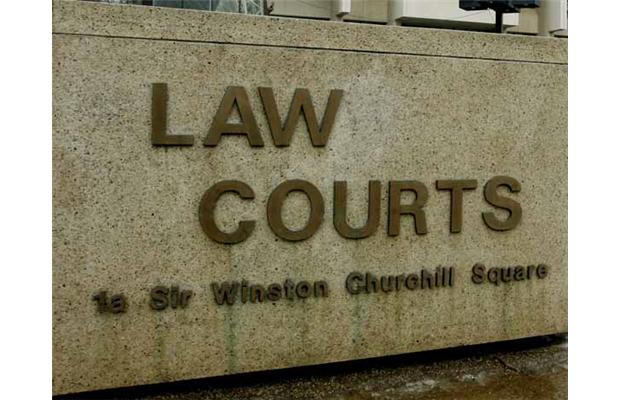EDMONTON – After a sexual assault case in Airdie was dismissed following three years of delays, Alberta’s court system was put under the microscope. A recently released report found that there is a cultural acceptance of delays in the system. The government is now addressing those findings, but some argue that the solutions being proposed won’t necessarily fix the problem.

After reviewing the Airdrie case of alleged victim Dani Polsom, Assistant Deputy Minister of Justice, Greg Lepp, found that the issue of delays went beyond just one case. Of the 1,100 delayed cases he looked at, only two per cent were due to the defence. The rest, according to his findings, were delayed because of the Crown or the system.
“People generally know that things take a long time to get to trial, but as the justice system participants, the judges, the defence lawyers, police – we’re all guilty in accepting this delay is inevitable. And that culture has to change in order for us to make progress.
“My message to the prosecutors and the Alberta Crown Prosecution Service is that we have to ensure that all the cases we do are dealt with urgently,” Lepp added.
His initial 32-page report, titled “Injecting a Sense of Urgency,” made a number of short and long term recommendations. Among them: adding more case management offices, eliminating preliminary inquiries, and correspondingly, adding more direct indictments.
During preliminary inquiries, all the available evidence in a case is presented. If the provincial court judge feels it’s sufficient, the case will then proceed to trial at the higher Court of Queen’s Bench.
Lepp explains that preliminary inquires were put in place at a time when the Crown Prosecution Service was not obligated to give complete disclosure to the Defence of its case. He adds that now, because of a more advanced Prosecution Service, only the cases that are worth taking to trial end up there.
In addition to cutting costs, Lepp claims eliminating preliminary inquires could cut down the time people awaiting trial have to spend in Remand Centres.
But Darcy DePoe, President of the Criminal Trial Lawyers’ Associatoin, believes that is a “deceptively simple solution to a complex problem.”
He argues that short preliminary inquiries can actually save court time.
“A few hours or even days in a serious case has led to the resolution of a case,” he says. “If that same matter had been sent to trial…you would set aside weeks of court time, and if that resolution is reached…after a day or two or three of evidence, or even hours of evidence, well then all the rest of the court time that’s been set aside has been lost.”
What’s worse, though, he says is that eliminating preliminary inquires may even lead to more mistrials and adjournments due to disclosure matters coming up, which could have been resolved before trial.
DePoe believes a better solution would be allocating more money in the justice system, especial in areas like legal aid.
“There is not a cultural acceptance – there is a problem with a vastly under-funded system. There are too few judges, too few courtrooms, too few court clerks, too few prosecutors,” he says.
The problem is greatest in smaller booming communities outside of Edmonton and Calgary.
However, the government’s response to the review indicates progress is being made – the average wait time for a trial is down 21 per cent in Red Deer and 45 per cent in Fort Saskatchewan. But, there’s no more money.
While the justice budget did decrease this year, court services funding went up by $2 million.
Still, DePoe says without a bigger increase, the problem won’t go away – it will only get worse.
“People don’t intersect with the justice system…and so it’s out of sight, out of mind. But it’s a huge problem…I really think if the public knew what was going on they wouldn’t be happy about it.”
With files from Vassy Kapelos, Global News
You can watch our three-part interview series with Greg Lepp below:
<a href=”https://twitter.com/TrishKozicka” class=”twitter-follow-button” data-show-count=”false”>Follow @TrishKozicka</a>
<script>!function(d,s,id){var js,fjs=d.getElementsByTagName(s)[0],p=/^http:/.test(d.location)?’http’:’https’;if(!d.getElementById(id)){js=d.createElement(s);js.id=id;js.src=p+’://platform.twitter.com/widgets.js’;fjs.parentNode.insertBefore(js,fjs);}}(document, ‘script’, ‘twitter-wjs’);</script>


Comments